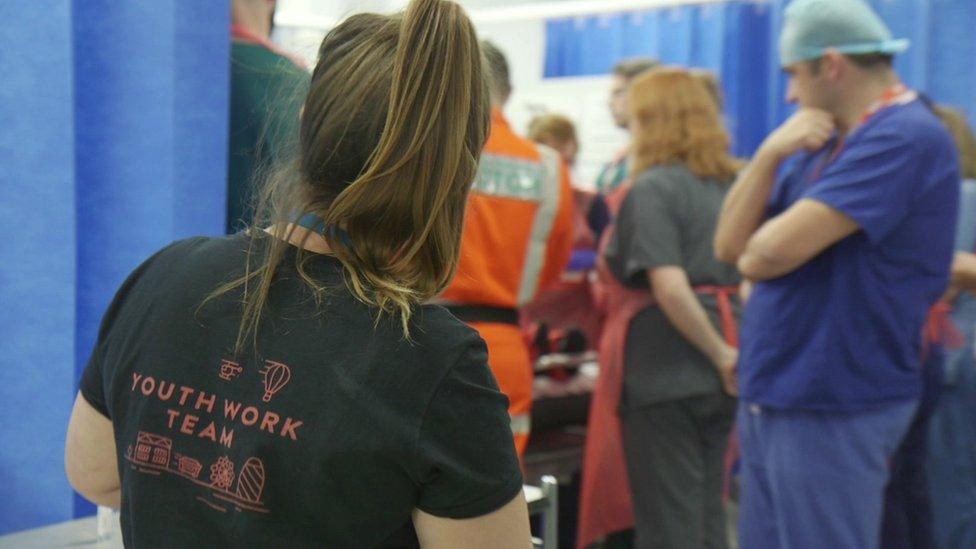Redthread: Helping young people to escape violent lives
- Published
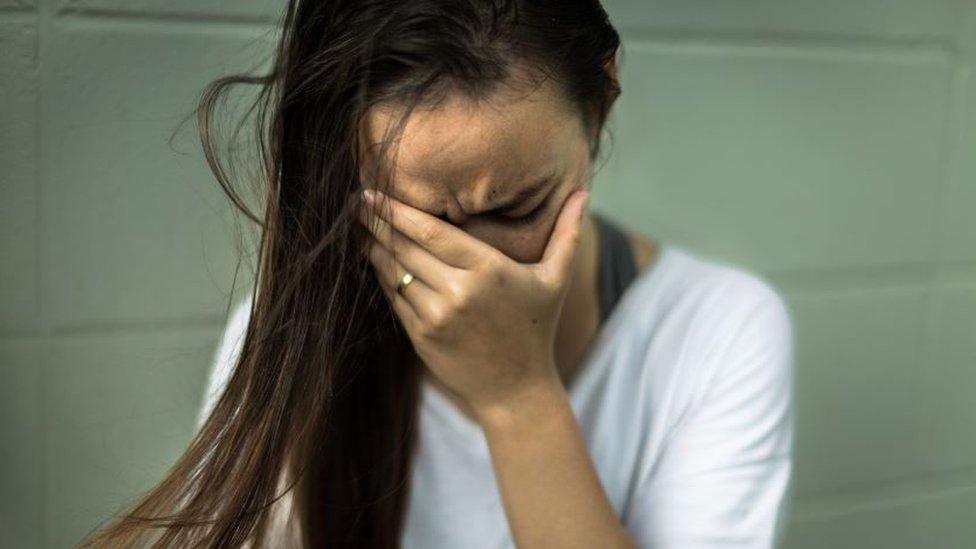
Alone with her child in a filthy hostel after fleeing another abusive relationship, 19-year-old Charlotte turned to self-harm in a desperate cry for help. It led to a chance meeting with a stranger who would help to transform her life.
Charlotte was at her lowest ebb. A victim of sexual abuse from the age of 13, she'd turned to a man she met at 17 whom she hoped would look after her, but he quickly became controlling.
"He used to say nasty things, he used to smash things in front of me.
"He used to intimidate me, used to basically try and make me do things I didn't want to do. Try and control me - like you can't wear make-up, you have to wear this."
Scared for her child's safety, she plucked up the courage to leave. They moved into a hostel but it was so dirty she could only bear it for a couple nights.
"There was no-one who I could turn to and I just thought… what have I got to live for?"
When it was discovered she had self-harmed, Charlotte was taken to Queen Elizabeth Hospital (QE) in Birmingham.
This proved a major turning point. Medics pulled curtains around an emergency department bay, making the young mother and her child a cubicle for the night. And as they slept, the nurse in charge went looking for help on Charlotte's behalf.
She spoke to Jodie Berry from the new Redthread youth work team, which operates at the QE and another Birmingham hospital, Heartlands.
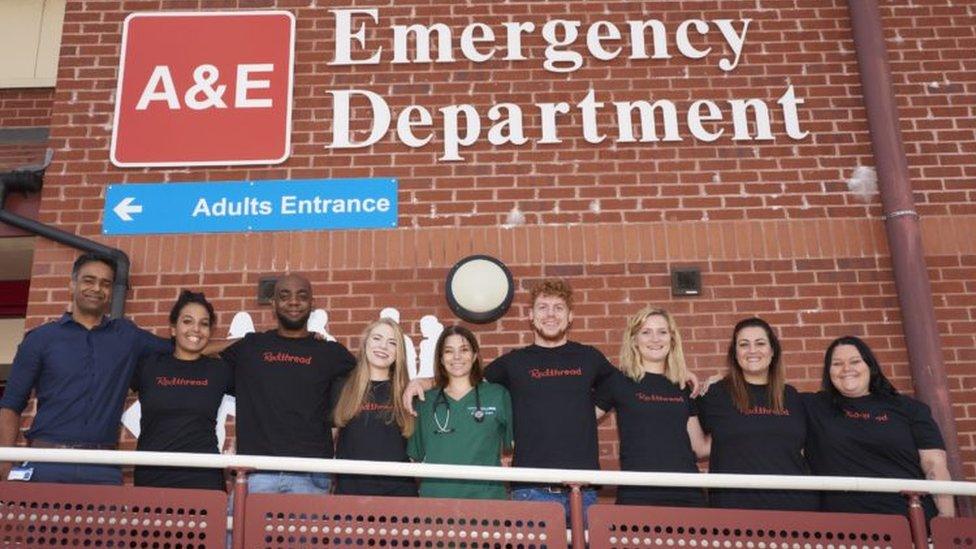
The Redthread team started work in Birmingham in August and their "puppy-like" enthusiasm has been welcomed by hospital staff
Warm, compassionate, and a youth worker in the West Midlands for 16 years, Jodie said she "knew what to ask" when she went to see Charlotte at 7am.
"At this point I had a lovely young lady with a beautiful child with nowhere safe to go to," she said.
"For me it is about empowering, and the first thing I did was listen to what she had to say and give her a voice."
Jodie said it was important to ask "what do you want to happen?" and help make this possible.
Charlotte couldn't believe she'd met someone who wanted to hear what she had to say.
"All day Jodie was supporting me, and I told her my background story and why I felt so low, and she could understand where I was coming from," she said.
"It was just nice to have someone there to talk to about stuff that I can't tell other people."
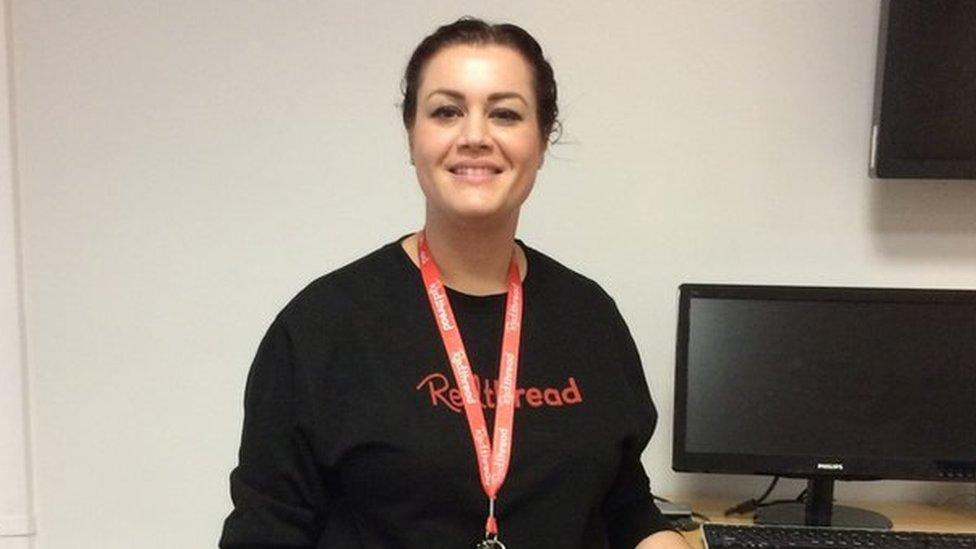
Jodie Berry has been a youth worker for 16 years
Jodie initially focused on Charlotte's basic needs: childminding so she could go for a shower and buying a few meals.
She then fought for her to get decent accommodation through social services and made sure she was not "put to the bottom of the pile" in getting mental health support.
Jodie has also arranged for her to meet other parents who need a wider support network.
"She just changed my life - sometimes I feel like she's my mum," said Charlotte. "I can depend on her like a mother figure.
"If she doesn't come around, she calls me every week or every few days to see how I am."
Charlotte's child is also happier, and the teenager she was "proud" to have got into a routine and to provide "proper" food.
"I am just trying to be a good parent.
"I just feel like a whole different person. Whereas months ago, I wouldn't even class myself as human."
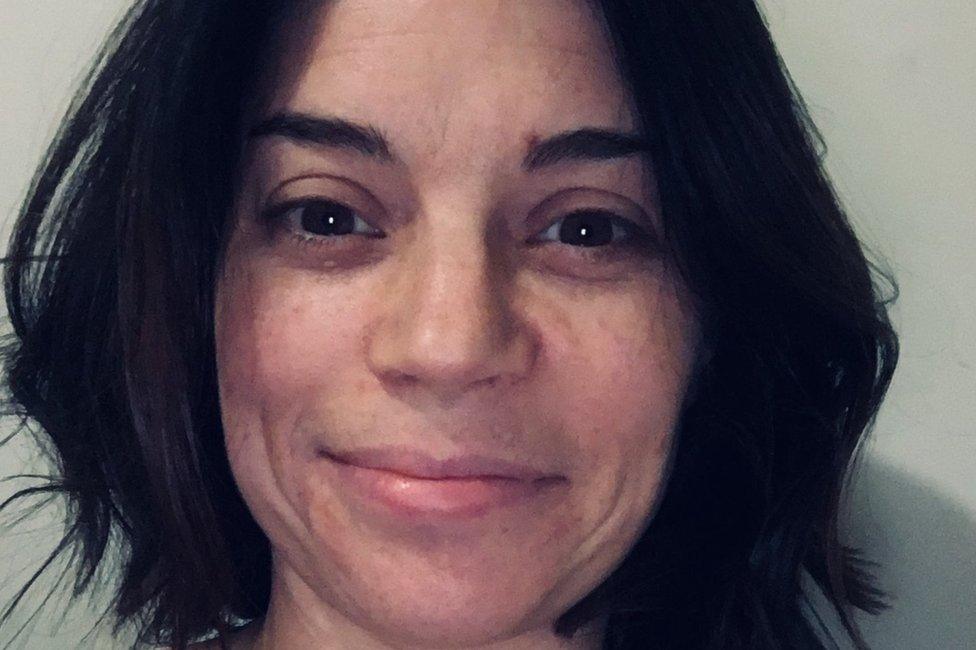
Dr Katie Wright, who helped set up the pilot in Birmingham, said the team's work in the community was key
The Redthread youth team are in Birmingham as part of an expansion of the charity's Youth Violence Intervention Programme, which runs at four London major trauma centres.
Alarmed by the prevalence in her home city of youth violence - including knife and gun crime - Dr Katie Wright, clinical lead for the children's emergency department at Heartlands, helped set up the pilot.
Researchers will be examining the three-year pilot's impact in the city and at Nottingham's Queen's Medical Centre, where it launched last spring.
The aim is to reach out to patients aged 11 to 25, who are often alone in hospital and in "intense crisis". Those involved in the scheme describe this as a "reachable" moment, when they hope to begin to steer young people towards a safer future.
The team in Birmingham started in August and worked with 175 young people in its first five months.
These include 21-year-old David, who ended up in intensive case after being stabbed in the shoulder.
He struggled with substance abuse, had a history of criminal behaviour and had been assaulted several times over the previous year.
With a Redthread worker's help, he gained the confidence and strength to "break the cycle of violence" he had become embroiled in.
He landed a place on a training course to help find a job and is getting help through a drugs counselling service.
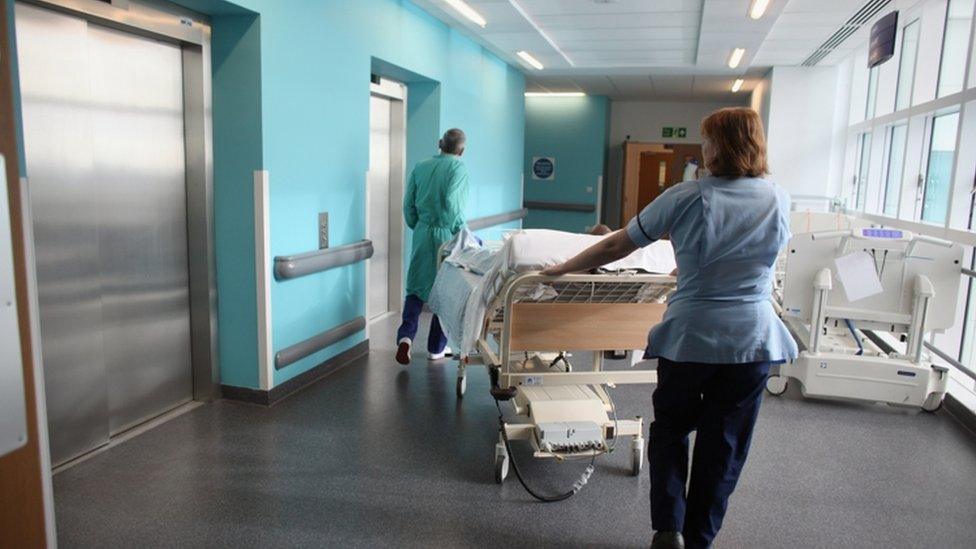
As a major trauma centre, Queen Elizabeth Hospital often helps people who have suffered severe violence
Last year data showed there were 2,850 knife-related offences in the West Midlands force area - 19% higher than in the previous year.
Indeed, the recent stabbing deaths and knife attacks in Birmingham only serve to reinforce the need for the charity's work.
But Dr Wright said that while knife crime was currently in the headlines, it was "only a drop in the ocean" in terms of the problems seen in hospital daily, including domestic abuse, sexual violence and exploitation.
She said the "motivated, committed" Redthread team had slotted in easily alongside trauma medics.
"It's like a box of puppies has arrived in the department," she said. "They are engaging with young people, are really supportive and bring new energy."
The doctor says hospital workers often deal with the knock-on effects of adverse childhood events, such as domestic violence and parents' drug and alcohol use.
"All of our cities and towns have lost tribes of adolescents who need support," she said.
She added there was "no easy solution" to Birmingham's "wave of youth violence", which was very complex.
But she said Redthread, particularly through its follow-up work in communities, was already "changing the lives of some of our young people".
"This is working."

Follow BBC West Midlands on Facebook, external, on Twitter, external, and sign up for local news updates direct to your phone, external.
- Published9 February 2019
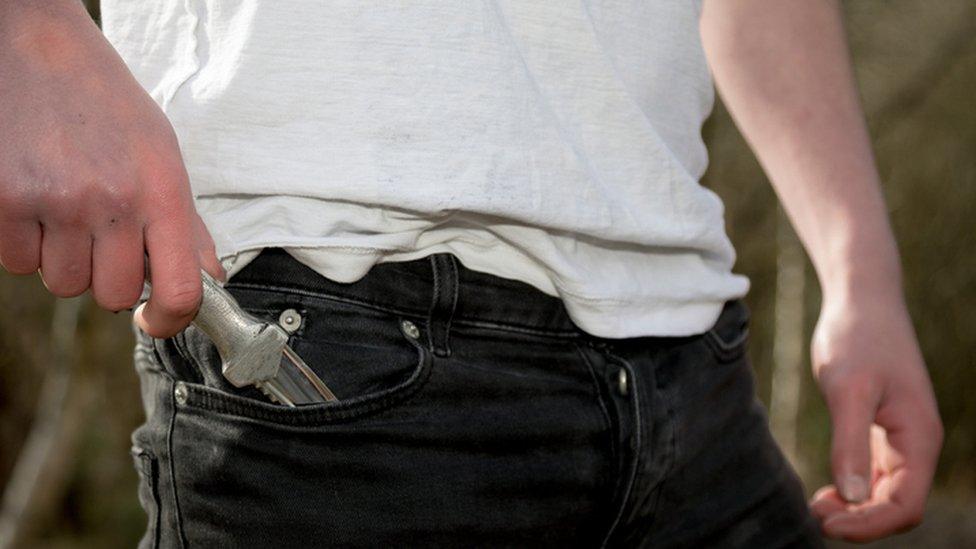
- Published12 January 2019
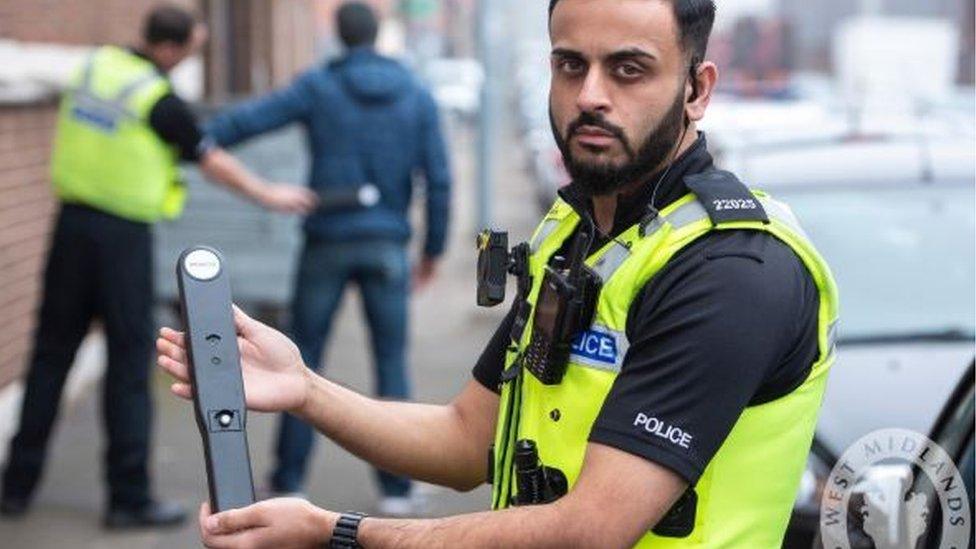
- Published15 January 2019
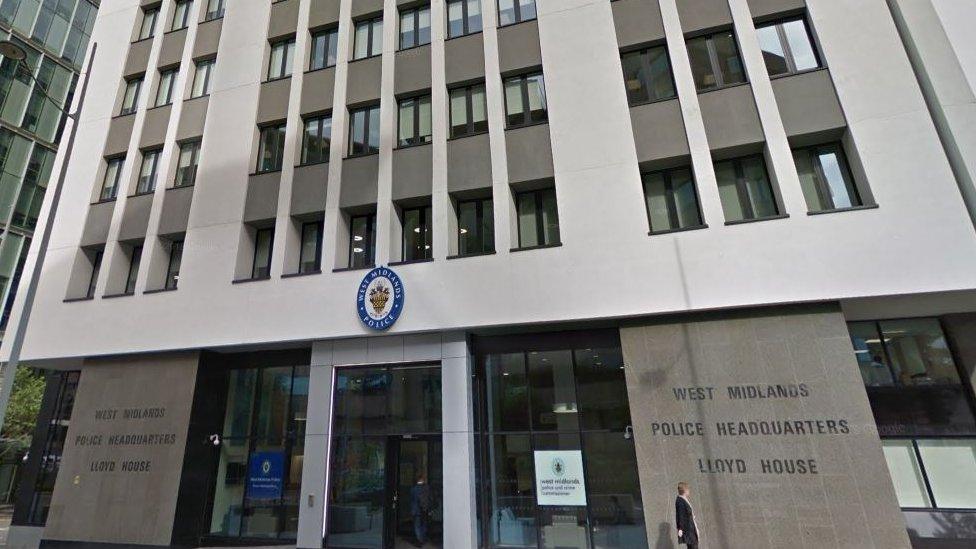
- Published13 November 2018
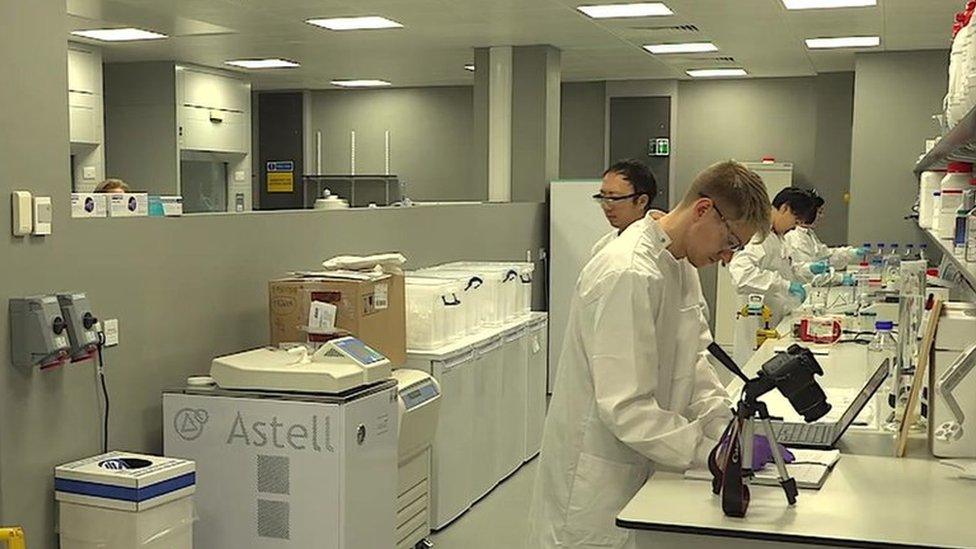
- Published10 October 2018
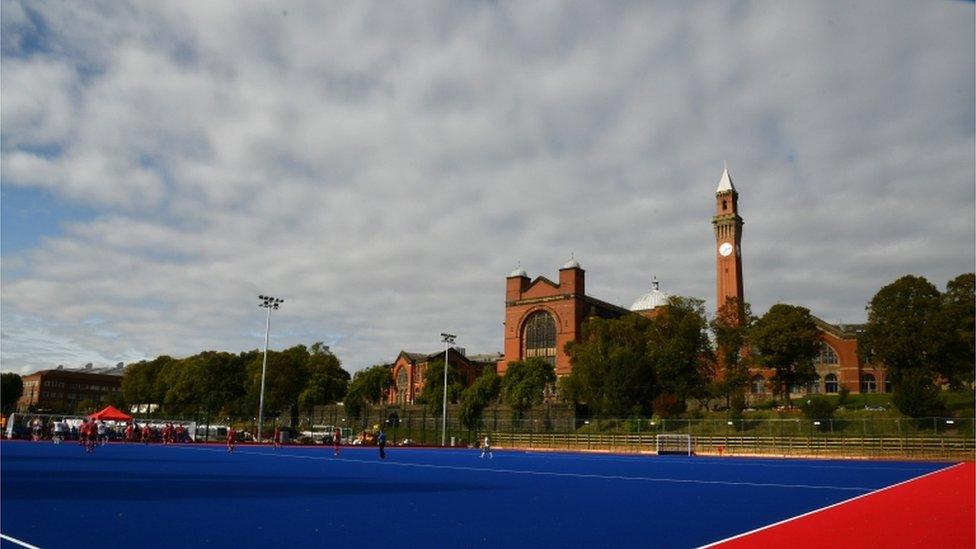
- Published3 October 2018
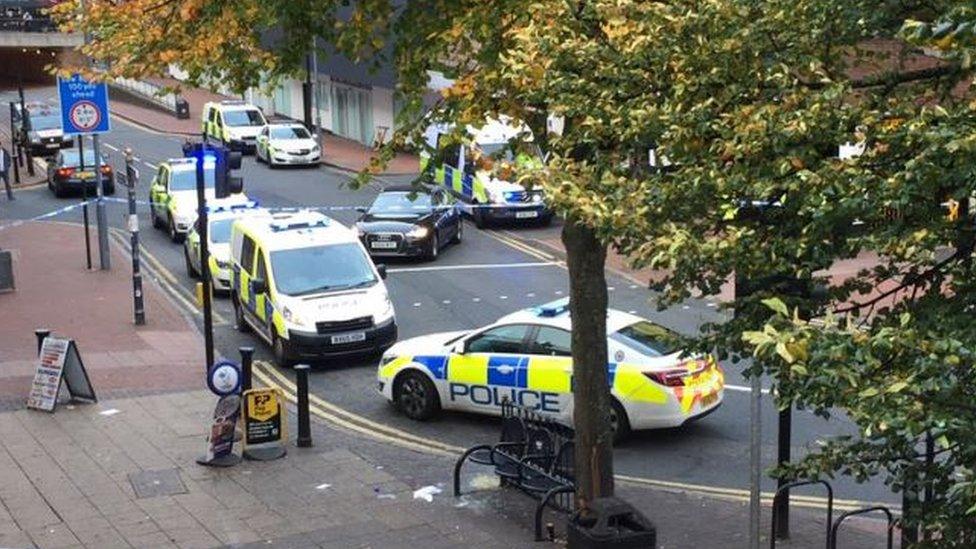
- Published3 November 2017
